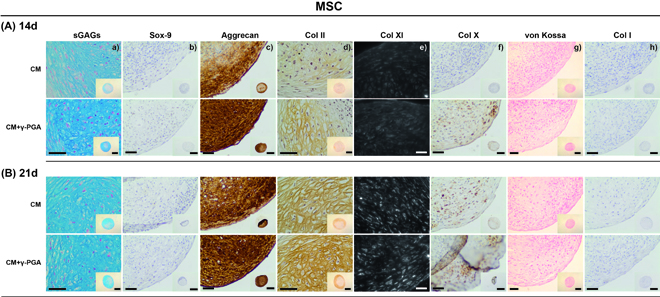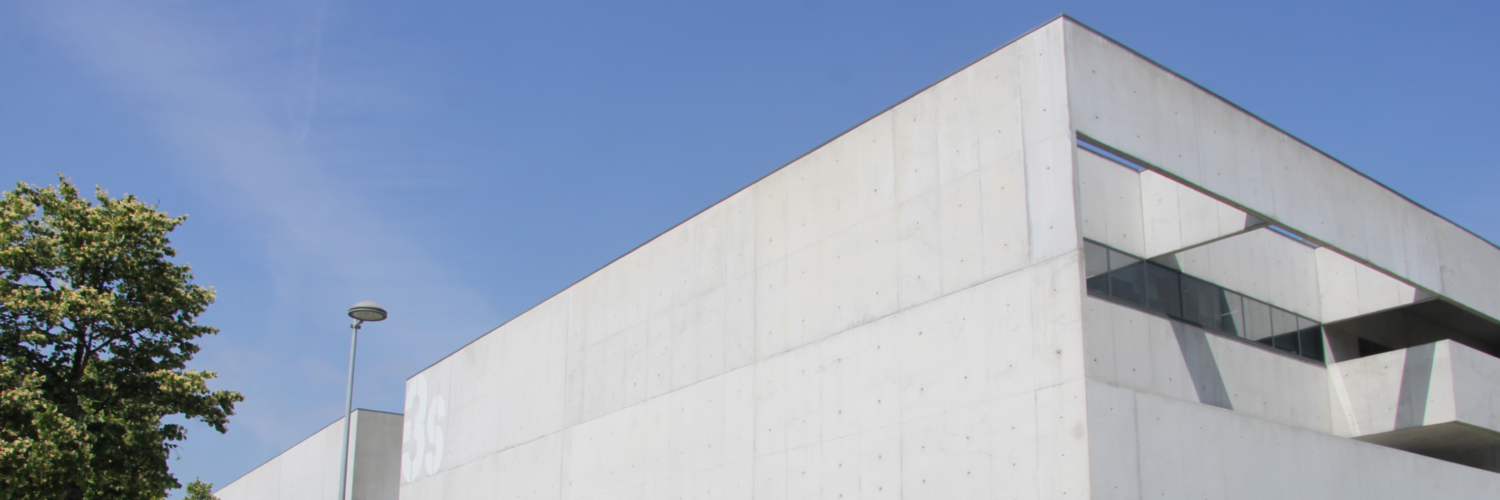INEB RECENT PUBLICATIONS: Poly(γ-glutamic acid) as an exogenous promoter of chondrogenic differentiation of human mesenchymal stem/stromal cells
INEB researchers recently published an article in the Tissue Engineering, Part A, available online since March 11, 2015. The article is entitled "Poly(γ-glutamic acid) as an exogenous promoter of chondrogenic differentiation of human mesenchymal stem/stromal cells" and is authored by Joana C. Antunes, Roman Tsaryk, Raquel M. Gonçalves, Catarina Leite Pereira, Constantin Landes, Christoph Brochhausen, Shahram Ghanaati, Mário A. Barbosa, C. James Kirkpatrick.

FIGURE: Stained paraffin-sections of MSC pellets cultured for (A) 14, and (B) 21 days in chondrogenic medium (CM) or CM supplemented with γ-PGA (CM+γ-PGA). For Col XI, bars represent 50 um. For sGAGs, Sox-9, aggrecan, Col II, Col X and Col I, as well as for the calcium salt deposits, bars of the detailed images of peripheral regions of the pellets represent 50 μm, while bars of the inserted whole pellet pictures represent 500 μm.
Cartilage damage and/or aging effects can cause constant pain, which limits the patient’s quality of life. Although different strategies have been proposed to enhance the limited regenerative capacity of cartilage tissue, the full production of native and functional cartilaginous extracellular matrix (ECM) has not yet been achieved.
Poly(γ-glutamic acid) (γ-PGA), a naturally occurring polyamino acid, was shown to support the production of cartilaginous ECM in cell pellets of human bone marrow mesenchymal stem/stromal cells (MSCs), when supplemented in the culture medium (CM+γ-PGA). Earlier cell condensation, higher sGAG content, type II collagen (Col II), Sox-9 (day 14), aggrecan and Col X (day 14) production, with no signs of mineralization or Col I, were observed. Overall, γ-PGA improved chondrogenic differentiation of MSCs, increasing ECM production earlier in culture. It is proposed that γ-PGA incorporation in novel biomaterials has a beneficial impact on future approaches for cartilage regeneration.


